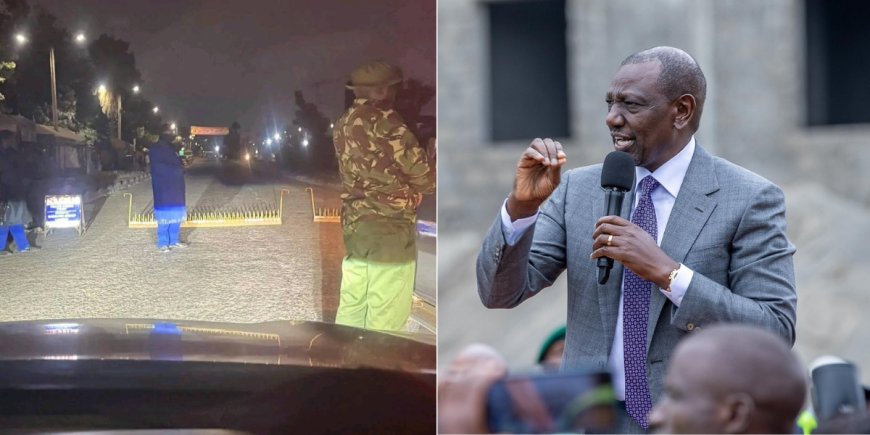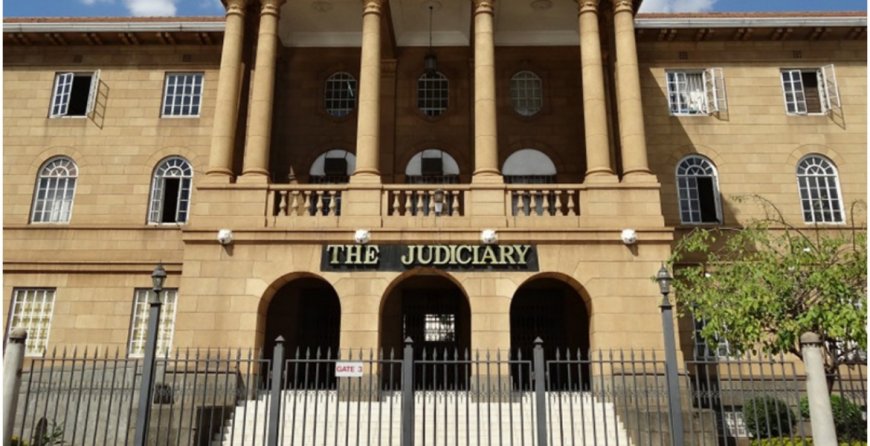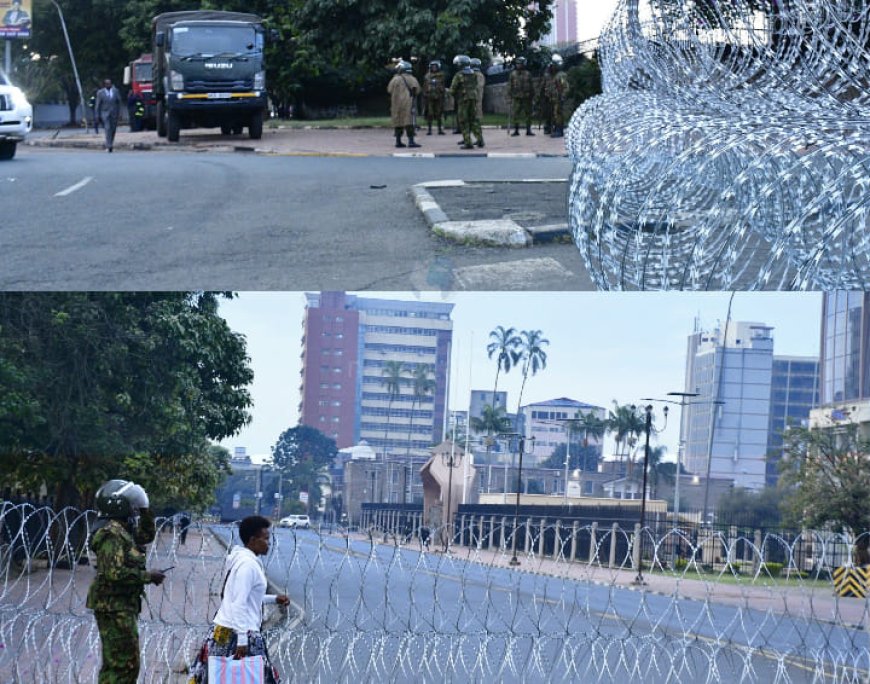Judiciary Clarifies Court Ruling On Police Roadblocks After Ruto Rant
Judiciary Spokesperson Paul Ndemo explained that the directive aimed to promote transparency and safeguard public convenience during such operations.

Just hours after President William Ruto slammed Justice Lawrence Mugambi for issuing orders that seemed to block police from setting up roadblocks to stop protesters, the Judiciary has come out to clarify that the orders were misinterpreted.
In a statement released Thursday, the Judiciary clarified that Justice Mugambi did not prohibit Inspector General of Police Douglas Kanja from putting up roadblocks, but simply required that police give prior notice before doing so.
Judiciary Spokesperson Paul Ndemo explained that the directive aimed to promote transparency and safeguard public convenience during such operations.

A building housing the Judiciary in Nairobi. /THE JUDICIARY
"It is important to clarify that the temporary orders do not prohibit the Inspector General or the police from barricading roads," the statement read in part, adding "Rather, the orders restrain the Inspector General and the police from mounting barricades or roadblocks that prevent public access to the Central Business District within Nairobi county or other public roads without issuing timely advisories or notices."
Ndemo added that the orders are limited to imposing a requirement for prior and timely advisory/notices to the public before the emergency barricading of roads to ensure that members of the public are adequately informed in advance, enabling them to plan their movements accordingly.
Justice Mugambi, in his ruling, stated that the National Police Service's actions on Monday, July 7, violated essential constitutional rights—specifically the freedoms of movement, assembly, and protest—protected under Articles 37 and 39 of Kenya's Constitution.
“Pending the hearing of the application, a conservatory order is hereby issued restraining the 1st Respondent, the Inspector General of the National Police Service, or any officer subordinate to him, from suspending Articles 37 and 39 of the Constitution by cancelling, disrupting, or interfering in any way with the right to assemble, protest, or picket while peaceful and unarmed,” the court ruled.
The petition, filed by Katiba Institute, argued that the police had effectively carried out an unlawful suspension of fundamental rights, violating Article 23 of the Constitution.
This ruling, however, attracted criticism from President Ruto, who lashed out at Justice Mugambi, directly accusing him of ignoring the safety of ordinary Kenyans and protecting constitutional rights at the expense of lives and property, despite enjoying the privilege of government-provided security.
"I have seen orders at the court barring the Inspector General of Police from setting up roadblocks and the use of teargas. The person who issued this directive is protected by the police. He has bodyguards who are police officers at home. He is driven by a trained officer, yet he says police should not protect the property of Kenyans," Ruto said.
Adding "There is a reason why there is a roadblock. There is a reason why police have tear gas. They are supposed to be used to protect the lives of Kenyans when they are in danger."
On Monday, July 7, police set up widespread roadblocks on all main roads leading into Nairobi’s CBD, bringing the city to a standstill.
Although security agencies defended the move as a preventative measure against a possible third wave of anti-government protests, the court ruled that the response was excessive and not proportionate to the threat.







